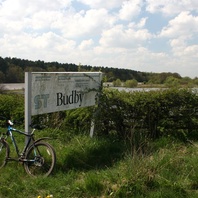
Viking Names
Budby
Budby, in the Bassetlaw Wapentake of Nottinghamshire, likely comes from the Old Norse male personal name Butti (or possibly Botti)and the Old Norse element bý ‘farm, settlement’. Budby is a joint parish with Perlethorpe.
Read More

Viking Names
Snarford
Snarford, in the Lawress Wapentake of Lincolnshire, is an Anglo-Scandinavian hybrid from the genitive singular form of the Old Norse male personal name Snǫrtr, i.e. Snartar, and Old English ford ‘a ford’. The ford crossed Barlings Eau and Snarford may have been situated on an ancient line of communication between Lincoln and the Wolds.
Read More
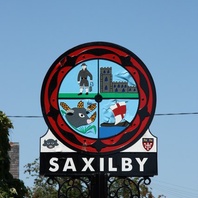
Viking Names
Saxilby
Saxilby, in the Lawress Wapentake of Lincolnshire, comes from the Old Norse male personal name Saksulfr and Old Norse by ‘a farmstead, a village’. It is a joint parish with Ingleby.
Read More
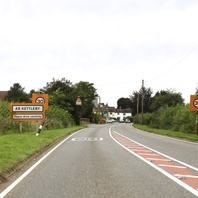
Viking Names
Ab Kettleby
Ab Kettleby, in the Framland Hundred of Leicestershire, comes from the Old Danish male personal name Ketil (Old Norse Ketill), originally a byname related to Old Norse ketill ‘a cauldron, a cauldron-shaped helmet’. This personal name was very common in England. It is compounded with Old Norse by ‘a farmstead, a village’. The affix Ab, which distinguishes the township from Eye Kettleby some four miles to the south, comes from the name of an early owner of the estate, a Middle English Abbe (either from the Old English male personal name Abba or the Old Norse male personal name Abbi).
Read More
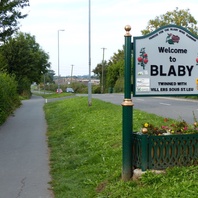
Viking Names
Blaby
Blaby, in the Guthlaxton Hundred of Leicestershire, likely comes from the unrecorded Old Norse male personal name Blár, which appears to be a byname from the Old Norse adjective blár ‘dark’, combined with the Old Norse element by ‘a farmstead, a village’.
Read More
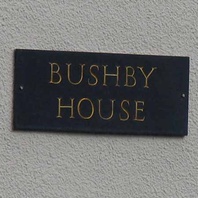
Viking Names
Bushby
The specific element of Bushby, in the Gartree Hundred of Leicestershire, is likely derived from the Old Norse male personal name Butr. Another Old Norse male personal name, Butsi, could also be formally accepted, and this personal name is found in the Danish place-names Busseby and Busserup. It has been suggested that the personal name became confused with Old English busc ‘bush’ or Old Norse buskr ‘shrub’, buski ‘shrubland’. This is a possibility because the neighbouring village Thurnby records a former area of thorn-scrub. The second element of the place-name is Old Norse by ‘a farmstead, a village’, thus Bushby could have the meaning ‘the farmstead of scrubland’ Bushby is now a joint parish with Thurnby.
Read More
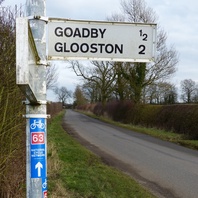
Viking Names
Goadby
The first element of Goadby, in the Gartree Hundred of Leicestershire, comes from the Old Norse male personal name Gauti (genitive singular Gauta), which is either a short form of names in Gaut- or is derived from an original byname meaning ‘a man from Gautland’. The second element of the place-name is Old Norse by ‘a farmstead, a village’. Occasionally the place-name is suffixed with reference to its neighbouring villages Noseley or Keythorpe to distinguish it from Goadby Marwood in the Framland Hundred.
Read More
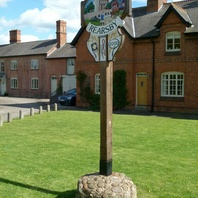
Viking Names
Rearsby
Rearsby, in the East Goscote Hundred of Leicestershire, comes from the Old Norse male personal name Hreiðarr and the Old Norse element by ‘farm, settlement’. The personal name here might be the same as that in Rotherby, Leicestershire.
Read More
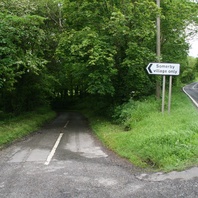
Viking Names
Somerby
Somerby, in the Yarborough Wapentake of Lincolnshire, probably comes from the Old Norse male personal name or byname Sumarliði and the Old Norse element by ‘farm, settlement’. The original byname means ‘the summer traveller’ and is recorded six times in Lincolnshire (all in Lindsey) in the Domesday Book. The spellings in Domesday parallel that of the place-name. Probably identical in origin is Somerby in Leicestershire. Alternatively, the name has been suggested to come from the Scandinavian compound sumar-hlíðar ‘summer slopes’, referring to pastures only used in the summers.
Read More
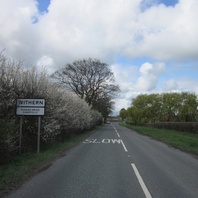
Viking Names
Withern with Stain
The current name combines two originally separate places. Withern shows the influence of Old Norse on an English place-name. Originally, this name was formed from the Old English elements widu ‘wood’ + ærn ‘a house’. However, given the large number of Scandinavian speakers in the area, they pronounced the first element as if it was the cognate Old Norse element viðr, also meaning ‘wood’. The ‘th’ in the modern form preserves this pronunciation difference between the closely-related Old English and Old Norse elements. Stain comes directly from Old Norse steinn ‘stone’ – the place was presumably named after a prominent stone there. Many other place-names in Lincolnshire, like Stainby, Stainfield and Stainton, also contain this word as their first element. Elsewhere in England, such names tend to be spelled ‘Stan-‘, like the very common Stanton, which is the same name but deriving its first element from Old English stān ‘stone’.
Read More
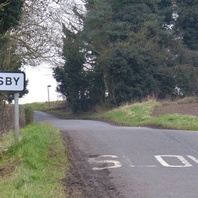
Viking Names
Frisby
Frisby, in the Gartree Hundred of Leicestershire, takes its name from a Scandinavian form of an ethnonym Frisa (gen. pl.) ‘Frisians’ and the Old Norse element by ‘farmstead, village’. This name has a similar construction to Frisby on the Wreake in the East Goscote Hundred of Leicestershire. Traditionally, the place-name has been interpreted as referring to Frisians who took part in the Viking invasions. However, the exact implications of such a name are not yet fully understood and are the subject of ongoing work by Dr Jayne Carroll of the Institute for Name-Studies, University of Nottingham.
